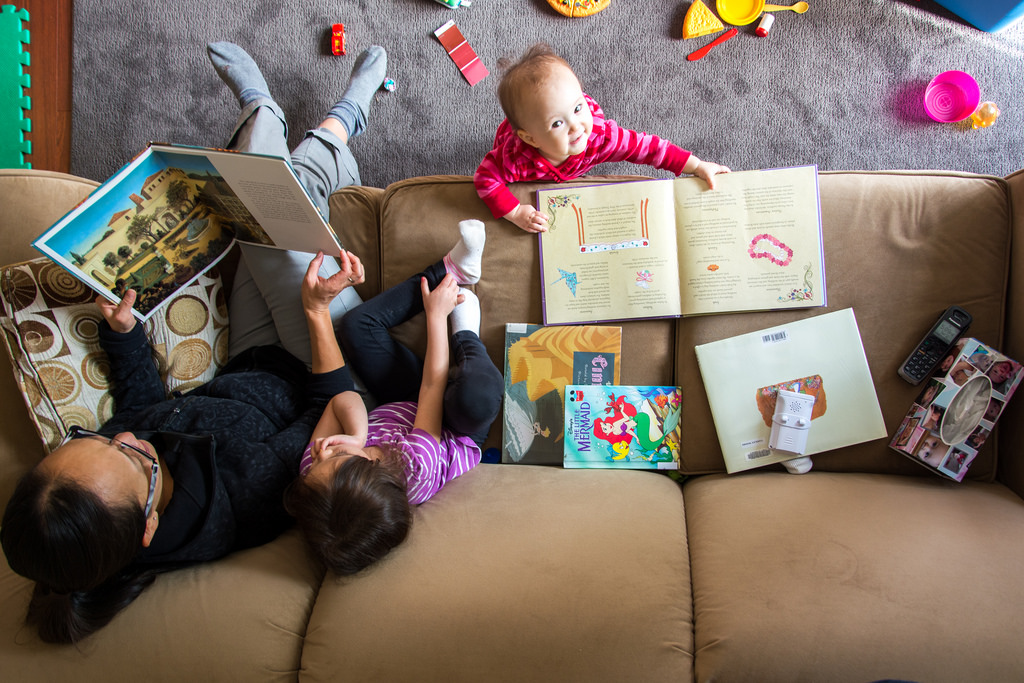Photo credit: Daddy-David / Foter.com / CC BY
Is My Child Intellectually Gifted?
Giftedness refers to a child’s possession and use of outstanding natural abilities. Intellectual giftedness is the result of both environmental and genetic factors, and both of these influences can lead to differences in the way the brain develops. Research has shown that giftedness often runs in families. However, as with all children, gifted children need to be raised in a stimulating environment. Parents are their children’s first teachers so knowing what to look out for from an early age is important.
Is My Child Bright Or Gifted?
A question that parents often ask, relates to whether their high achieving, straight A child is bright or whether they are gifted. Learning characteristics of a child who is bright compared to a child who is gifted will often enable parents to gain further insight into their child’s intellectual development. In comparing the difference, a bright child will know the answers and can easily accomplish classroom tasks. The gifted child will have original and abstract ideas. Bright children will research and find the answers; a gifted child will know the answers. A bright child will grasp the meaning while a child who is gifted draws inferences. A bright child will absorb information while a gifted child will manipulate information. In a nutshell, all intellectually gifted children are considered bright, but not all bright children are considered intellectually gifted.
It is important to understand that being well ahead in intellectual ability does not automatically mean that the child will be ahead in all areas. Gifted children often demonstrate an uneven pattern of development. There can be a significant difference between a child’s chronological age, intellectual development, and emotional and social development. Each individual child who is gifted has a unique profile of learning strengths and needs.

How Are Children Identified As Intellectually Gifted?
If you are starting to consider that your child may be gifted, a first step is to look at him or her in the context of other children of the same age. Parents play an important role in identification and they may be the first to realise their child is gifted. If you and others close to your child notice advanced capabilities compared to same aged peers then it would be worthwhile to investigate further. In Malaysia, you can find further information on the Malaysian National Association of Gifted Children website.
Gifted children do share some common characteristics but keep in mind that not every gifted child will show all of these characteristics. Typical gifted characteristics include: an early interest in surroundings, super sensitivity, an extensive vocabulary, an exceptional memory, a well-developed sense of humour, a vivid imagination and excellent problem solving skills.
Parents who strongly suspect their child is intellectually gifted should consider having their child’s IQ assessed in order to confirm what is suspected. IQ testing is the single best measure of giftedness. However, there are limitations and they should not serve as the sole source of identification. Intellectual giftedness is relatively uncommon, and is recognised only in children whose IQ is at or above 130.
What Are The Benefits Of Having My Child Identified As Gifted?
A child who is gifted has an individualised profile of learning strengths and needs and it is important to work closely with your child’s school. One of the most positive things you can contribute to your child’s education is keeping in communication with the school in an open, positive way. Share your knowledge about your child, ask questions about their education, find out whether the curriculum that your child’s school teaches suits high ability children. Is the curriculum focused on open-ended learning or is it based on content or rote learning? Is it a rigid one size fits all curriculum or does the curriculum allow for differentiated learning based on ability, creativity, knowledge and skills?
Generally speaking, parents of intellectually gifted children should simply do what all parents need to do, respond consistently and positively to their children’s individual needs, passions, and curiosity. Encourage social interaction with same aged peers and like-minded individuals. Be consistent with behaviour expectations, never forgetting that your gifted child is just that, a child with all the normal needs of a child – love, support, and fun.
Jane Kilpatrick
Educational Psychologist
www.gardenschool.edu.my
"ExpatGo welcomes and encourages comments, input, and divergent opinions. However, we kindly request that you use suitable language in your comments, and refrain from any sort of personal attack, hate speech, or disparaging rhetoric. Comments not in line with this are subject to removal from the site. "























